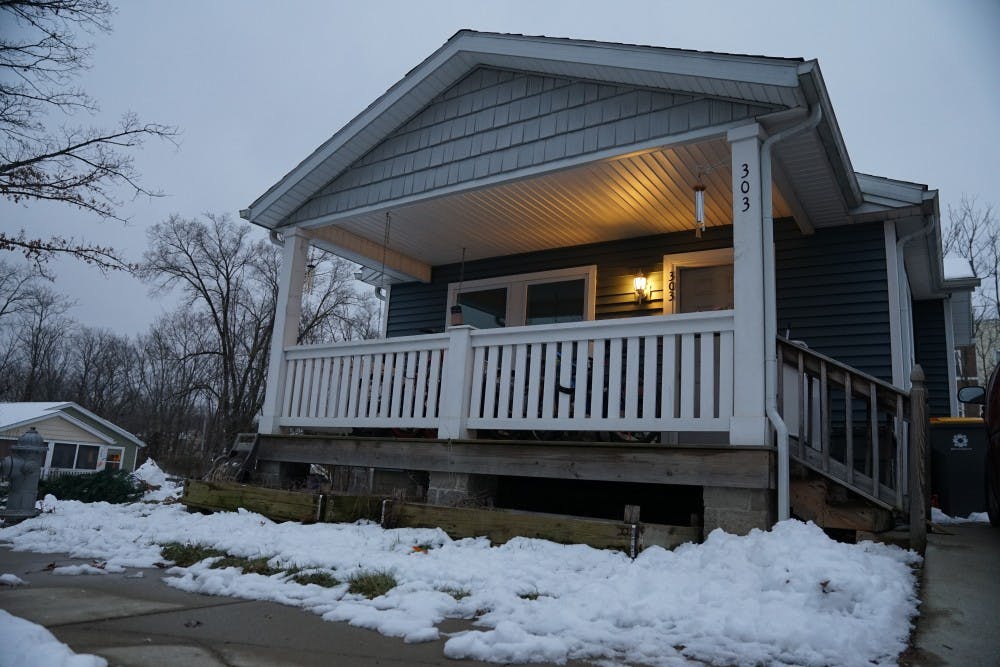This house on 13th Street is one of the four houses that had a rooftop solar panel system installed this past fall through Indiana Solar for All, ISFA. The nonprofit program's goal is to increase accessibility to renewable energy for lower-income residents. STEVEN LIN
Bloomington program to subsidize solar panels for 12 low-income households
Published Jan 14, 2019 5:25 pm
When Tora Knapp went to a meeting to learn about solar panels, she and her husband knew it was out of their budget.
The couple then heard about Indiana Solar for All, or ISFA, a program that helps provide solar panels for low and moderate income families in Monroe and surrounding counties. They applied.
Soon enough, a crew of volunteers were at the Knapp house installing ten solar panels over two days.
“All the volunteers were on the roof and we kind of stood back and said, ‘Holy cow, this is actually working,’” said Ryan Zaricki, owner of Whole Sun Designs, the company that works with ISFA to provide panels.
After providing eight families with solar panels, four of which were installed last fall and the rest of which will be installed this spring, ISFA is accepting applications for 12 more recipients this coming year.
“The purpose of the organization is two-fold,” said Anne Hedin, volunteer treasurer and media coordinator for ISFA. “It’s to help families with a low income lower their utility bill and at the same time get as much solar up as possible.”
The program, through the local nonprofit Center for Sustainable Living, receives money from city initiative Solarize Bloomington. The initiative is run by the city and nonprofit program Solar Indiana Renewable Energy Network.
Through ISFA, residents who receive 80 percent or less of the median income of their county are qualified to apply to receive solar panels. Those who are chosen will work with ISFA on an individual basis to determine whether they will receive panels at a free or reduced price depending on how much households can contribute.
Recipients of panels are chosen partly based on if they fit certain requirements and if they can give back to the organization, Hedin said.
Some recipients volunteer installing panels, while others fundraise, use social media to outreach and work in project management.
The recipients helped complete each of the households’ installations, even if their own home would not receive panels until the following season, Hedin said. They have formed a tight-knit group.
“We’re really lucky with the eight families that have come together,” Knapp said. “Even though we had never put panels together.”
Along with providing the panels, Whole Sun Designs teaches the recipients how to install them and oversees the whole process.
Knapp said she and her husband enjoyed learning more about electricity and teaching their two teenagers about it as well. She said they have already seen a difference in their utility bill after having the panels for just a few months.
“We can look up there and say we put these up there and we know how they’re wired into the house,” Knapp said.
The application for the 2019 ISFA program closes Jan. 31.







